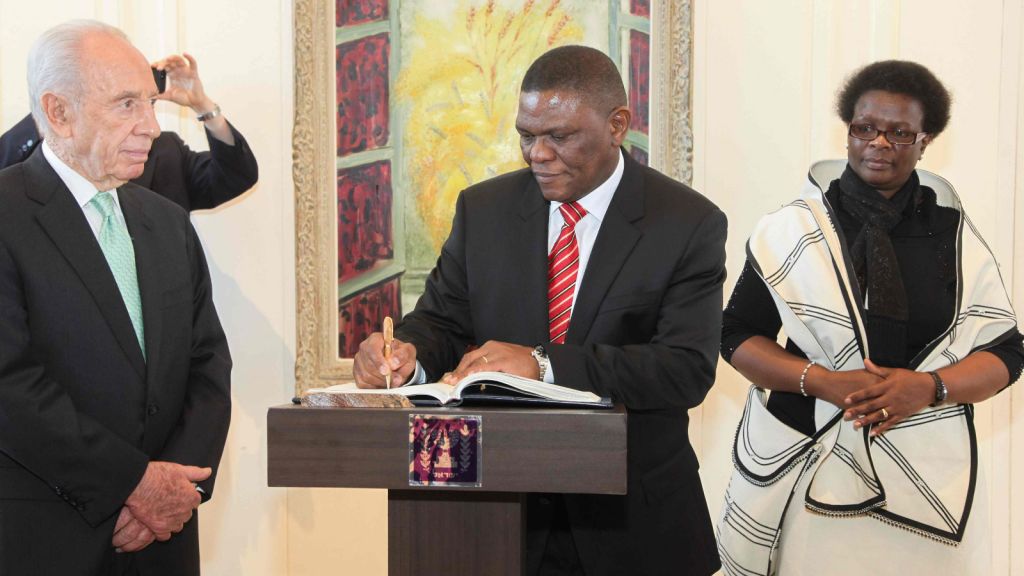Given the fact that the recent assertions tabled by the South African Ambassador to Israel, Sisa Ngombane, were in conflict with the official stance of the South African government, stakeholders are now asking why the government has not headed the calls to have Ngombane recalled. Upon the return of the South African participant on the Women’s Boat to Gaza, Leigh-Ann Naidoo, Ngombane speaking at a press conference to welcome the Wits academic home, showed keen support for Israeli policy, even justifying Operation Protective Edge of 2014.
Given the fact that Israel through the 2014 onslaught on the Gaza Strip caused the death of more than 2000 Palestinians, the ambassador’s comments overtly contradict South Africa’s stance on the issue, which calls for an end to the occupation and for a two-state solution. Activists are, therefore, asking why South Africa is ignoring the calls of the masses by choosing to maintain relations with Israel.
‘SA government has ignored the calls of Palestinian activists’
Speaking to VOC’s Burning Issue, arms deal activist and author, Terry Crawford Browne explains that in 2014, following Operation Protective Edge, parliament heard calls from numerous organizations for government to implement policies that would oppose the current treatment of Palestinians.
He says that while the declaration was passed, it floundered, along with requests to have South Africans serving in the Israeli army recalled.
“So, the government makes noises, but does nothing. The ambassador serves as a lobbyist for the Israeli government; he does not represent either our government or the people of South Africa,” Browne noted.
Meanwhile, member of South African Jews for a Free Palestine, Merlynn Edelstein explains that the South African government is acting in the same manner as its Middle Eastern counterparts.
She says that governments in the Middle East echo the calls for an end to the Israeli occupation of Palestinian lands in a bid to soothe the populace, while continuing to engage economically with the occupying power.
“We still have these trade relations when we have activists challenging the blockade and we have no way of ensuring the safety of the activist’s, even though we have an embassy there,” Edelstein added.
DIRCO’s position
Spokesperson for the Department Of International Relations and Cooperation (DIRCO), Nelson Kgwete explains that the department is very clear on the issue of Palestine and calls for an independent and viable state of Palestine.
Given the lack of contact between Naidoo and the South African consulate, he asserts that Israeli authorities purposefully hinder access to consular services when South Africa citizens are detained due to the official stance of the South African government on the occupation.
In response to the petition to recall the ambassador, he affirms that the views expressed by the ambassador upon Naidoo’s return have been discussed in the department.
“We continuously engage within the department as to how our diplomats are supposed to engage when it comes to the causes that we fight for. One of the causes that we fight for is the cause of the Palestinian people and we expect that all our diplomats across the world speak from the page,” he stated.
Kgwete asserts that in the debriefing of the ambassador, Ngombane after apologizing explained that his comments were misconstrued to have been influenced by Israeli interests.
He notes that the South African government took the decision to establish an embassy in Israel in order to engage directly with Israeli authorities, in a bid to ensure the freedom of the Palestinian people.
“The question that was raised [at the conference] was not whether we should have an ambassador there, but whether the ambassador, which we have now, is correctly articulating our position.”
Kgwete asserts that while he notes concerns that the ambassador has shown evidence of contradicting the South African government’s position on the conflict, government officials speak within the language of diplomacy.
Describing the pro-Palestinian lobby in South Africa as vital to keeping officials in check, he says that where ambassadors are not articulating the position of government, they are interrogated.
“The question of recall [however] is a last resort where we feel that an ambassador has defied the instructions of government, despite having been warned,” he added.
Commenting on the points raised by Kgwete, executive director of the Afro-Middle East Centre (AMEC), Naeem Jeenah asserts that the problem is not only that South Africa has diplomatic relations with Israel, but that it enjoys trade relations with the occupying state.
“Since 2003/2004 when South Africa and Israel signed a trade agreement, trade between south Africa and Israel has been increasing between 15 and 25 per cent, both ways.”
Acknowledging the sentiment of opening an embassy in Israel to secure the freedom of Palestinians, Jeenah says that the South African government should heed the lessons of its own history and follow in the footsteps of the nations who boycotted relations with the apartheid regime.
“Would we have said to India, which was the first country to cut of ties with the Apartheid government, it is important for you to maintain relations so that you can have channels of communication? – I think it’s a rhetorical question,” Jeenah continued.
To sign the petition, Recall South African Ambassador to Israel, visit: https://awethu.amandla.mobi/petitions/recall-south-african-ambassador-to-israel/
VOC






 WhatsApp us
WhatsApp us 

